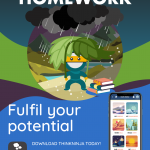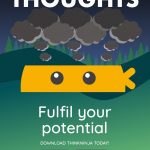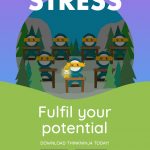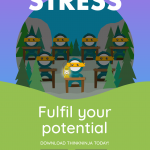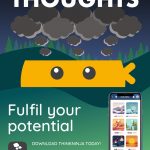The Computer Science and ICT department at the GFM aims to equip learners with the skills needed to be successful when using technology and survive in the dynamic and ever changing digital environment.
We aim to equip pupils to use computational thinking and creativity to understand a changing world.
Computer Science has deep links with Mathematics, Science, and Design and Technology, and provides insights into both natural and artificial systems. In Computer Science, pupils are taught the principles of information and computation, how digital systems work, and how to put this knowledge to use through programming. Building on this knowledge and understanding, students are equipped to use information technology to create programs, systems and a range of content. Computer Science also ensures that pupils become digitally literate – able to use, and express themselves and develop their ideas through information and communication technology – at a level suitable for the future workplace and as active participants in a digital world.
Key Stage 3
Our Key Stage 3 syllabus provides a varied and interesting curriculum covering many aspects of Computer Science and Information Communication Technology. All of which has been sequenced to apply knowledge like building blocks throughout the 3 years of KS3.
Year 7
- Google Tools – This is a comprehensive introduction to using Google Tools. Such as Docs, Sheets, Slides and more. Giving the pupils the tools necessary to use digital technology in all of their subjects.
- Business Enterprise – This is an introduction to business concepts, students will learn how businesses promote and sell various products by applying the 4 P’s. They will also learn how website design and spreadsheet applications support business goals and visions.
- Problem Solving – Pupils gain an insight into writing code to solve problems and working in teams to develop their collaboration, they will explore text based programming on Small Basic.
Year 8
- E-Safety – More so than ever, digital awareness is so important. The pupils receive up to date information regarding this topic to allow them to make informed decisions when online.
- Augmented Reality – Pupils gain an insight into what AR is and how its applications are used in the real world. They learn the stages of development in creating a basic prototype.
- AI & Machine Learning – Pupils begin by considering where AI is used from simple problems such as solving a maze to those more advanced, such as self-driving cars. Students will then look at how machine learning and deep learning are used in image recognition.
- Computer Systems – Pupils will look at the fundamentals of Computers and learn various elements of Computers, what the CPU is and how it works, as well as how files and applications are stored on their devices.
Year 9
The Year 9 curriculum provides an excellent introduction into Computer Science and ICT at GCSE and supports pupils in their options choices.
- Python Programming – Pupils will have an introduction to textual programming. They will design and develop simple programs using the three basic programming constructs (sequence, selection and iteration).
- Networks – Pupils will learn that the World Wide Web is part of the Internet, and how web addresses are constructed and stored as IP addresses. Client-server, peer-to-peer networks and the concept of cloud computing. They will also look at ways of keeping data secure and simple encryption techniques.
- KS4 Taster lessons – Over a number of lessons pupils will be taught KS4 style lessons to give them an understanding of some of the KS4 courses we offer.
- Business – During the Business taster lesson pupils will learn about the two different business pathways we offer. They will get a taste of some topics covered at KS4 such as the 4 Ps of the market mix by marketing a new product and business finance.
- ICT – During the ICT taster lessons pupils will learn about Augmented Reality and spreadsheet modelling.
- Computer Science -During the Computer Science taster lessons pupils will look at the impact of new technology on the environment, cyber security threats and the role of the components of the CPU.
- Computational Thinking – Pupils begin by considering where AI is used from simple problems such as solving a maze to those more advanced, such as self-driving cars. Students will then look at how machine learning and deep learning are used in image recognition. This is a fast moving area of development, so the Ethics of AI is considered.
Key Stage 4
AQA GCSE Computer Science
This course helps pupils develop an understanding of computer science methods in the real world – pupils will decompose and model aspects of real-world situations, and as a result be able to design, build and test a fully-programmed solution to a problem. Pupils develop knowledge and understanding of how technology can be used to help proactively with current issues that impact on modern society, preparing them for their next steps in today’s global world.
OCR Cambridge National Information Technologies
This course improves pupils’ knowledge of the digital environment and their confidence with IT. They learn about data management issues and develop practical skills by planning and creating an integrated technological solution to communicate information. Knowing how and why data is gathered and being able to turn raw data into something meaningful is essential as pupils move through education and into employment. To be able to do this they will need to have the confidence to use a range of information technology that is currently available, as well as being adaptable and resilient enough to deal with the rapid advances
Key Stage 5
A-Level Computer Science
Eduqas
- A level Computer Science encourages students to develop:
an understanding of, and the ability to apply, the fundamental principles and concepts of computer science, including abstraction, decomposition, logic, algorithms and data representation
- the ability to analyse problems in computational terms through practical experience of solving such problems, including writing programs to do so
the capacity for thinking creatively, innovatively, analytically, logically and critically
- the capacity to see relationships between different aspects of Computer Science
- mathematical skills
- the ability to articulate the individual (moral), social (ethical), legal and cultural opportunities and risks of digital technology.
BTEC Nationals Information Technology
Pearson
This qualification is designed for students who are interested in a basic introduction to the study of IT alongside other fields of study.
Lower Sixth
Certificate
- Unit 2 – Creating Systems to Manage Information
- Students complete a task to design, create, test and evaluate a relational database system that manages information.
- Unit 3 – Using Social Media in Business
- Students explore how businesses use social media to promote their products and services. Students also implement social media activities in a business to meet requirements.
Upper Sixth
After completing the certificate in Lower Sixth students can continue to study for the Extended Certificate
- Unit 1 – Information Technology Systems
- Students study the role of computer systems and the implications of their use in personal and professional situations.
- Unit 5 – Data Modelling
- Students study how data modelling can be used to solve problems. They will design and implement a data model to meet client requirements.

